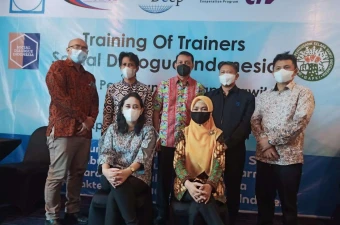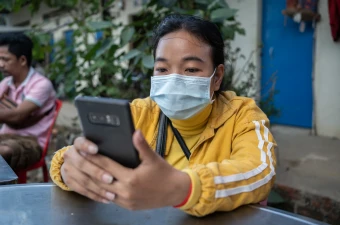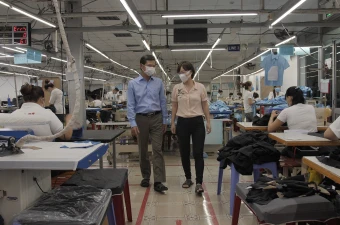 Indonesia's Omnibus Law postponed thanks to persistent opposition
Indonesia's Omnibus Law postponed thanks to persistent oppositionIndonesia's Omnibus Law postponed thanks to persistent opposition
The Indonesian Government has been given two years to revise the controversial Omnibus Law. This was decided by the Indonesian Constitutional Court on 25 November. According to the court, the Omnibus Law is 'legally flawed'. Trade unions, including partner union KSBSI, have long expressed concerns that the new law will undermine labour rights.
Labour rights
In February 2020, Indonesian President Joko Widodo presented a first draft of the so-called Omnibus Law. This law is aimed at increasing economic investment and industrialisation in Indonesia. Not long afterwards, trade unions - including the trade union KSBSI - and environmental activists revolted. They feared that the law would undermine the labour rights laid down by the ILO and increase deforestation. Despite the protests, the Law was passed in October 2020.
In November 2021, the Indonesian Constitutional Court ruled that the correct legislative process had not been followed. The government has two years to review the legal process of the Omnibus Law, otherwise it will be considered completely unconstitutional. Despite public protests, the court did not set aside the actual content of the law. That means the law will remain in force until the procedural changes are made.
New possibilities
The court's ruling is to the credit of the law’s opponents, including the union KSBSI. In any case, the ruling creates new opportunities for trade unions to influence the process and increase the pressure to ensure that labour rights are no longer undermined.
KSBSI is one of the organisers of a three-day social dialogue training for employers and partner unions in East Kalimantan. The training aims to raise the level of collective bargaining in the palm oil sector. Just pay and safe work are among the topics on the agenda. CNV Internationaal and the Dutch Employers Cooperation Programme (DECP) played a role in training the trainers.
More stories of change
 Indonesia's Omnibus Law postponed thanks to persistent opposition
Indonesia's Omnibus Law postponed thanks to persistent oppositionPublication date 14 04 2022


